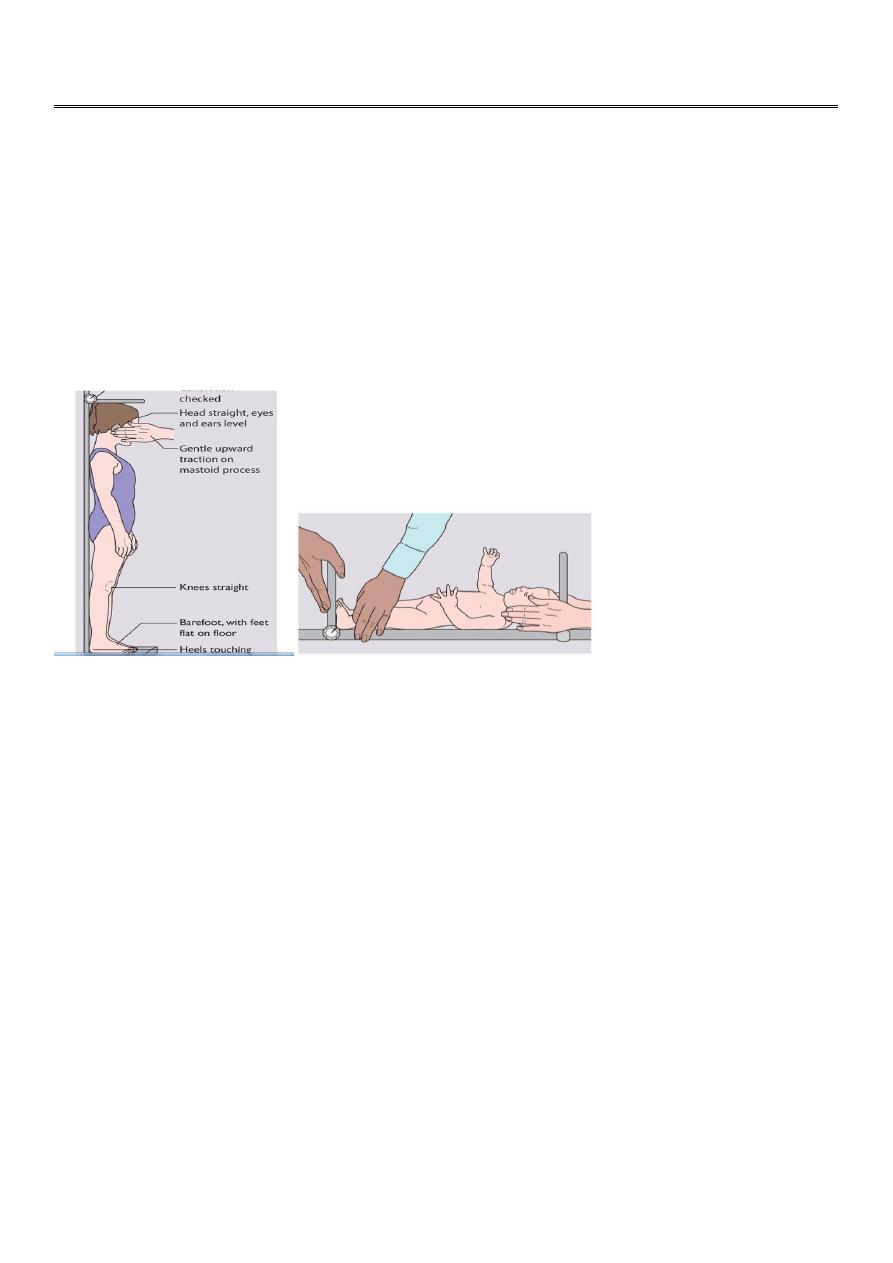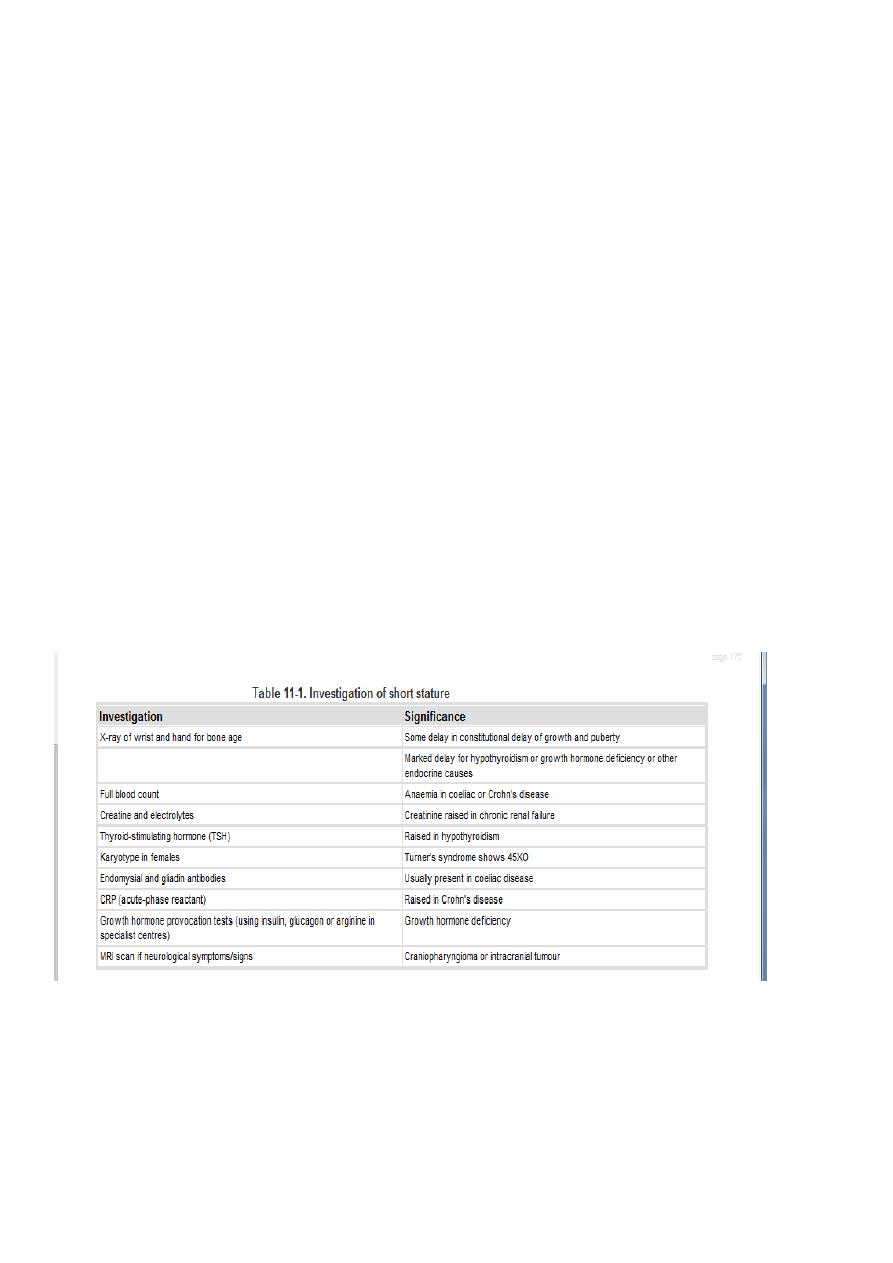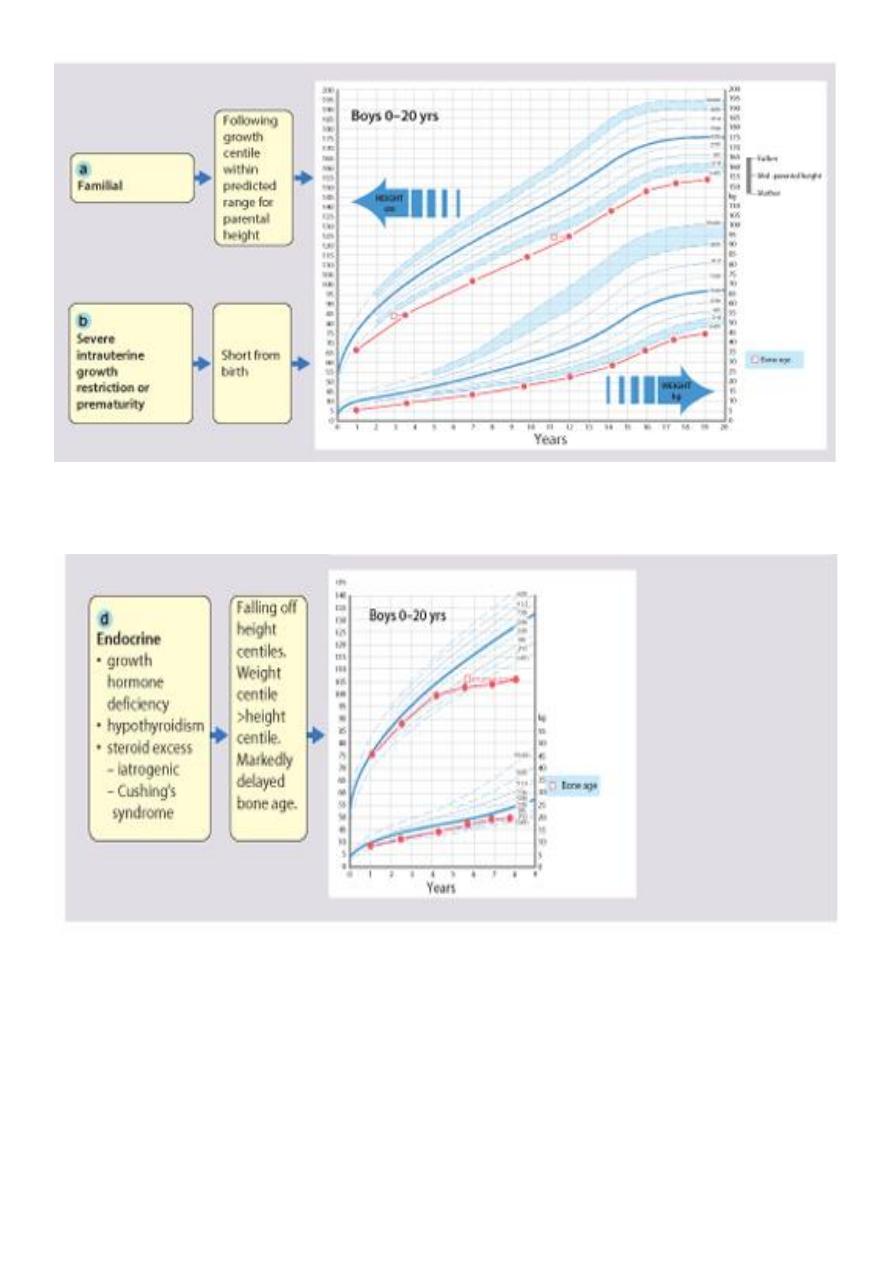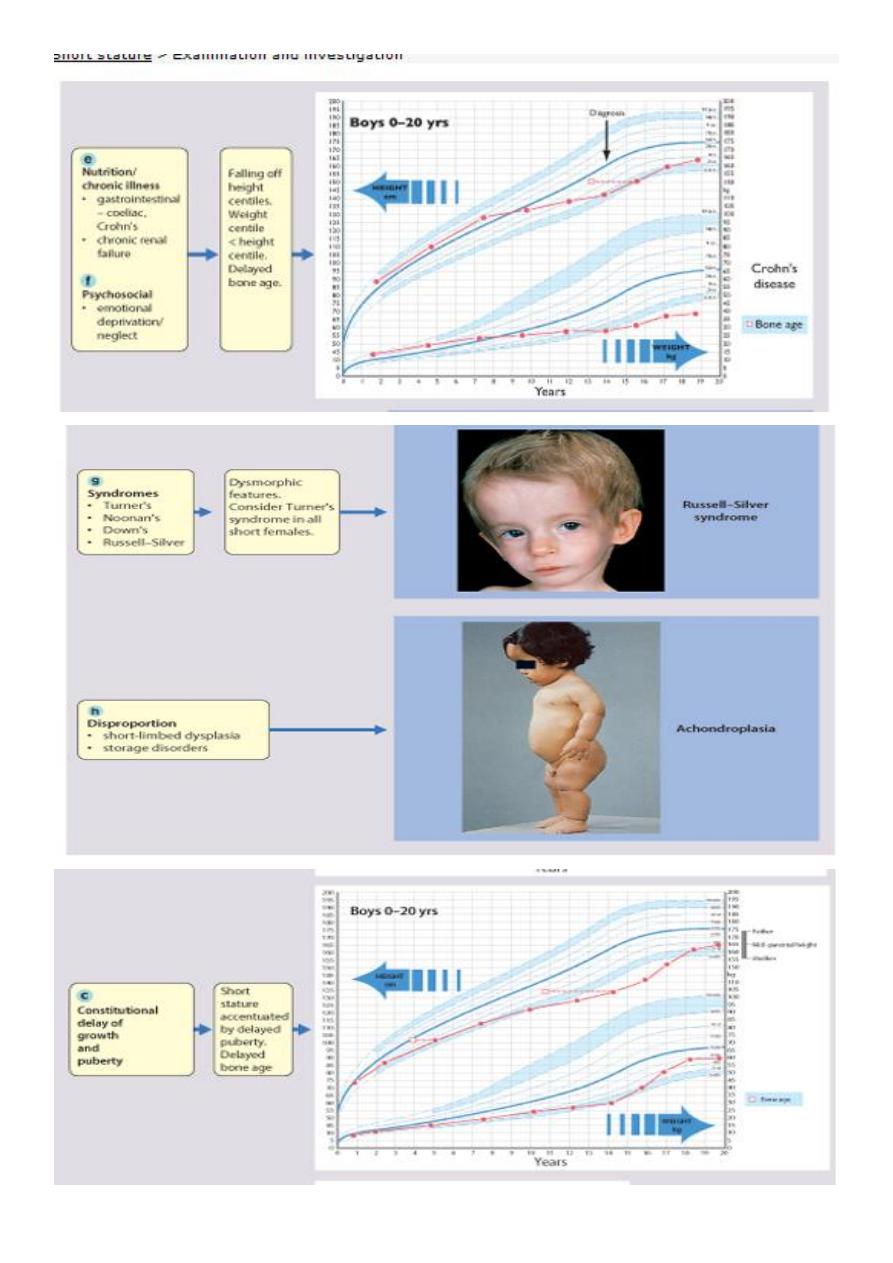
1
Fifth stage
Pediatric
Lec-6
.د
رواء
1/1/2014
Short stature
Short stature is usually defined as a height below the second (i.e. two standard
deviations below the mean)
Measuring height velocity is a sensitive indicator of growth failure. Two accurate
measurements at least 6 months but preferably a year apart allow calculation of height
velocity in cm/year
Causes
Familial: Most short children have short parents and fall within the centile target range
allowing for mid-parental height.
Intrauterine growth restriction (IUGR) and extreme prematurity : About one-third of
children born with severe intrauterine growth restriction or who were extremely
premature remain short
Constitutional delay of growth and puberty : These children have delayed puberty,
which is often familial, usually having occurred in the parent of the same sex. It is
commoner in males. It is a variation of the normal timing of puberty rather than an
abnormal condition. It may also be induced by dieting or excessive physical training. An
affected child will not show the same sexual changes as his peers, and bone age would
show moderate delay. The legs will be long in comparison to the back. Eventually the
target height will be reached. The condition may cause psychological upset.
Endocrine : Hypothyroidism, growth hormone (GH) deficiency and steroid excess are
uncommon causes of short stature. They are associated with children being relatively
overweight, i.e. their weight on a higher centile than their height

2
Nutritional/chronic illness : This is a relatively common cause of abnormal growth.
These children are usually short and underweight; i.e. their weight is on the same or a
lower centile than their height. Inadequate nutrition may be due to insufficient food,
restricted diets or poor appetite associated with a chronic illness
Chronic illnesses which may present with short stature include:
o coeliac disease, which usually presents in the first 2 years of life
o Crohn's disease
o chronic renal failure - may be present in the absence of a history of renal disease
o cystic fibrosis.
Psychosocial deprivation : Children subjected to physical and emotional deprivation
may be short and underweight and show delayed puberty. This condition may be
extremely difficult or impossible to identify, but affected children show catch-up
growth if placed in a nurturing environment
Chromosomal disorder/syndromes : Many chromosomal disorders and syndromes are
associated with short stature. Down's syndrome is usually diagnosed at birth, but
Turner's, Noonan's and Russell-Silver syndromes may present with short stature.
Turner's syndrome may be particularly difficult to diagnose clinically and should be
considered in all short femal
Whereas Turner's syndrome is associated with 45XO karyotype, Noonan's and Russell-
Silver syndromes have no recognised chromosomal abnormality and diagnosis requires
recognition of their clinical features

3

4
